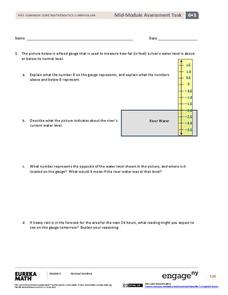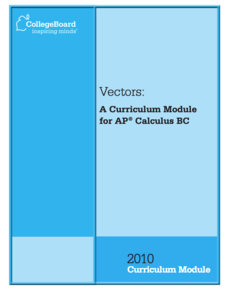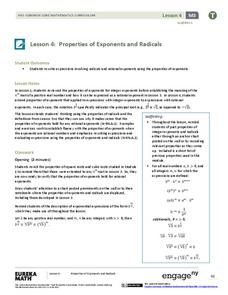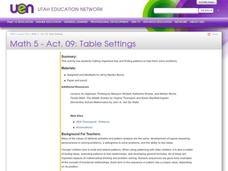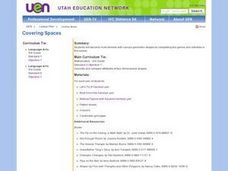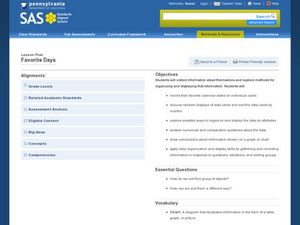EngageNY
Real-World Positive and Negative Numbers and Zero
Class members investigate how positive and negative numbers are useful in the real world. Individuals first read a short passage and identify terms indicating positive and negative numbers. They consider situations involving positive...
Mt. San Antonio Collage
Quiz 2: Polynomials
Four questions that get right to the polynomial point. High schoolers list all the attributes of a polynomial function, including finding all complex zeros. The last two questions prompt them to write a function based on the given...
Curated OER
Citifying the Country
First graders present a list of the attributes of a region and tell how changes occur in a region.
EngageNY
Mid-Module Assessment Task: Grade 6 Math Module 3
Ensure your class has a solid understanding of positive and negative integers before moving on. The 14th installment of a 21-part series is a mid-module assessment. Scholars solve problems on positive and negative integers, on...
College Board
Vectors: A Curriculum Module for AP® Calculus BC
It is all in a matter of time. The model curriculum module uses parametric equations and vectors to solve problems dealing with particle motion along a curve. At the beginning of the lesson, the unit reviews parametric equations and...
Curated OER
Concept Attainment Model: Volume and Surface Area
Using a concept attainment approach, learners identify surface area and volume by sorting examples (photos) that depict each concept (positive) from those that don't (negative). Then as a class, they develop definitions of each...
EngageNY
Existence and Uniqueness of Square Roots and Cube Roots
Teach cube roots by building on an understanding of square roots. The third installment of a 25-part series asks learners to solve simple quadratic and cubic equations using roots. Scholars compare square roots and cube roots throughout...
EngageNY
Properties of Exponents and Radicals
(vegetable)^(1/2) = root vegetable? The fourth installment of a 35-part module has scholars extend properties of exponents to rational exponents to solve problems. Individuals use these properties to rewrite radical expressions in...
Curated OER
Real Life Application of Area and Perimeter
Fifth graders explore real-life situations of area and perimeter. They develop a list of real-life applications of area and perimeter, select a situation, and write a step-by-step procedure and diagram on graph paper for solving the...
Curated OER
Table Settings
Fifth graders explore and examine how to make organized lists and find patterns to help them solve problems. They identify, analyze and determine a rule for predicting and extending numerical patterns involving operations of whole...
Curated OER
Math: Geometric Fun and Games
Third graders discover geometric shapes by completing a series of games and activities. Using ropes with knots tied every foot, they make shapes such as squares, triangles, and hexagons. In pairs, 3rd graders use pattern blocks to...
Mathematics Vision Project
Module 6: Congruence, Construction, and Proof
Trace the links between a variety of math concepts in this far-reaching unit. Ideas that seem very different on the outset (like the distance formula and rigid transformations) come together in very natural and logical ways. This...
EngageNY
Integer Sequences—Should You Believe in Patterns?
Help your class discover possible patterns in a sequence of numbers and then write an equation with a lesson that covers sequence notation and function notation. Graphs are used to represent the number patterns.
Curated OER
Digital Codes
In this Algebra II/Pre-Calculus worksheet, students convert numbers into binary, octal, and hexadecimal code and examine different uses for writing numbers in other bases. The four page worksheet contains twelve multi-part...
Curated OER
Favorite Days
Students collect and organize data about themselves. In this data analysis instructional activity, students discuss their favorite calendar dates and explore ways to display the data.



